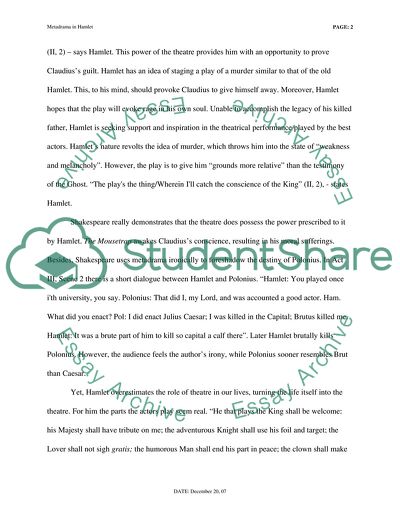Metadrama in Hamlet Essay Example | Topics and Well Written Essays - 1500 words - 1. https://studentshare.org/literature/1711046-metadrama-in-hamlet
Metadrama in Hamlet Essay Example | Topics and Well Written Essays - 1500 Words - 1. https://studentshare.org/literature/1711046-metadrama-in-hamlet.


